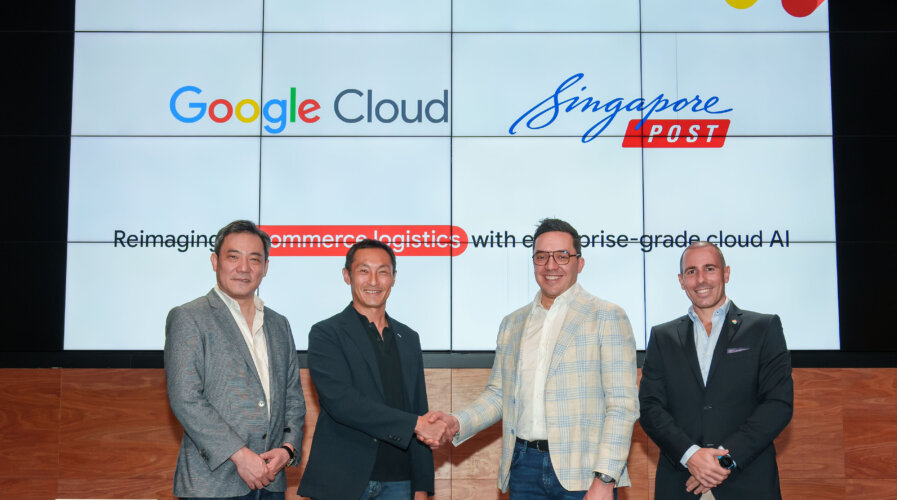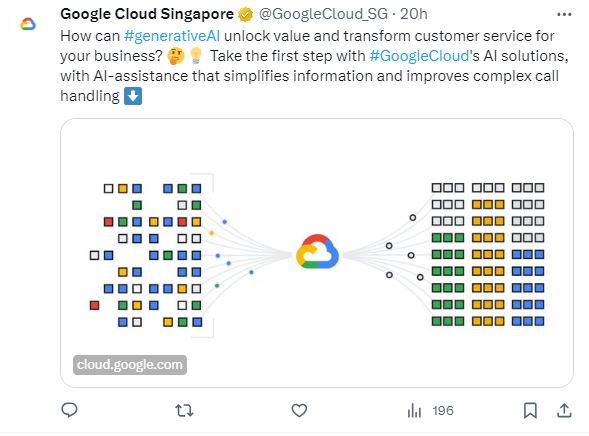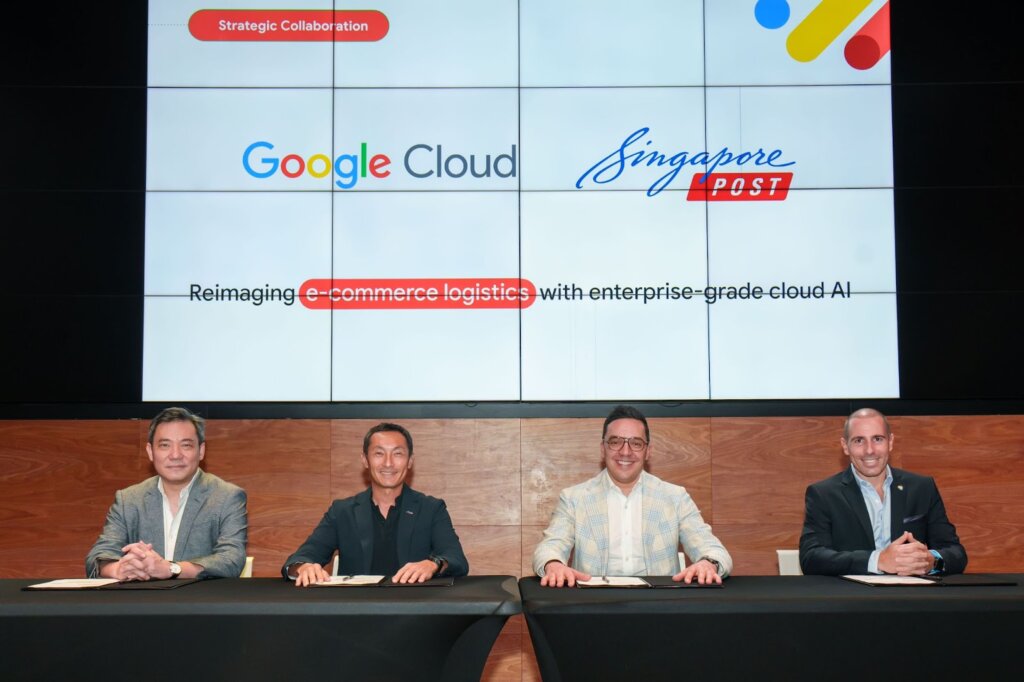
SingPost advances digital innovation in integrated logistics and supply chain management with generative AI from Google Cloud. (Image by Google).
Supercharging logistics and supply chain management with generative AI
- Generative AI is revolutionizing logistics and supply chain management.
- SingPost has partnered with Google Cloud in its digital journey.
- SingPost has also developed an AI solution to streamline its e-commerce logistics operations.
AI is revolutionizing supply chain management and logistics, and providing companies with a competitive advantage in a dynamic and uncertain market. Specifically, AI can be used in logistics and supply chain management to improve efficiency, accuracy and resilience in various aspects and operations.
In Southeast Asia, AI is a game-changer for logistics and supply chain management. Since the disruptions brought on by the Covid-19 pandemic, organizations have been using AI to ensure business continuity. And now, with generative AI solutions being developed as well, the industry is seeing more than just automation and route management for deliveries.
Currently, AI in logistics and supply chain management can help organizations with:
- Optimizing routing and delivery – AI can use real-time data, such as traffic, weather, road conditions, and customer preferences, to find the best routes and schedules for delivery. This reduces fuel consumption, emissions, costs and delivery times.
- Demand forecasting – AI can analyze data from multiple sources, such as sales history, market trends, weather, customer behavior, and social media, to generate accurate predictions of future demand. Companies are able to optimize inventory levels, streamline supply chain processes and reduce the risks of stockouts or overstocking.
- Improve loading process – AI can help automate the loading and unloading of trucks, containers, and warehouses, using computer vision, robotics, and sensors. This increases safety, speed and accuracy as well as reduces labor costs and human errors.
With generative AI, businesses in the industry could automate clerical work, predict operational results, factor in tariffs and even negotiate shipping rates. As sustainability continues to be thrust into the limelight, generative AI can play a pivotal role in creating environmentally friendly supply chains.

Generative AI is revolutionizing logistics and supply chain management.
SingPost and Google Cloud
One company that has been accelerating its digital journey in logistics and supply chain management is Singapore Post Limited or SingPost. A leading postal and e-commerce logistics provider in Asia Pacific, SingPost’s portfolio of businesses spans national and international postal services, warehousing and fulfillment, international freight forwarding, and last-mile delivery, serving customers in more than 220 global destinations.
The company has just partnered with Google Cloud to accelerate its digital transformation journey and drive its next phase of sustainable growth. SingPost has already migrated all the IT workloads hosted in its on-premises data centers to Google Cloud and is in the process of harmonizing and consolidating its technology stack, establishing a robust and secure foundation to power accelerated AI-driven innovation.
Using Google Cloud’s AI-optimized infrastructure, SingPost has not only yielded cost savings of 30% in IT operations but is also capable of handling complex AI workloads, while ensuring cost-efficiency, scalability, and sustainability. Added to which, SingPost is deploying Google Cloud’s BeyondCorp Enterprise platform to enforce zero-trust security principles like multi-factor authentication and device verification, ensuring that only authorized staff can access proprietary company information.
Coupled with strategic investment in high-growth markets, this deployment has resulted in international logistics generating 86% of the group’s revenue – a key milestone in its ongoing transformation into a technology-driven logistics enterprise.
“Our positive engagement with Google Cloud to develop an AI solution—through its joint AI Trailblazers initiative with the Singapore Government—gave us the confidence to embark on the next step of this journey,” said Noel Singgih, group chief information officer at SingPost.

SingPost also developed an AI solution to streamline its e-commerce logistics operations. (Image by Google).
AI for logistics and supply chain management
SingPost’s AI solution for streamlining its e-commerce logistics operations cuts out manual re-entry of partner and supplier information from trade documents into its database.
That frees up staff from the tedious task of having to dig through document archives to find the information they need, letting them focus on making strategic decisions and delivering high-quality customer interactions.
The solution is built on Google Cloud’s Vertex AI platform, foundation models, and Document AI. The AI solution transforms unstructured data from trade documents into a searchable repository, with a generative AI-powered chat interface that understands natural language queries and brings accurate and relevant information to the surface.
Enhanced by Google Cloud, SingCloud aims to scale the use of its solution, to optimize supply chain orchestration across its logistics network and facilitate faster deliveries.
At the same time, SingPost is also using Vertex AI to explore solutions for several other use cases, including automating internal legal document reviews and providing more personalized interactions to enhance customer service.
All the while, SingPost will retain complete control over its data, including prompts and user inputs at inference time when using Vertex AI. That means the data does not need to leave SingPost’s Google Cloud environment, is encrypted both in transit and at rest, and is not accessible by Google Cloud or any other external parties.
“By investing in AI development and collaborator platforms with built-in privacy, control, security, and compliance capabilities, SingPost is empowering every employee—regardless of their role or function—to identify and capitalize on new opportunities for work optimization. This serves as a strong example of how a large enterprise can move swiftly to extract diverse benefits from generative AI adoption,” said Mark Micallef, managing director, Southeast Asia, Google Cloud.
READ MORE
- Data Strategies That Dictate Legacy Overhaul Methods for Established Banks
- Securing Data: A Guide to Navigating Australian Privacy Regulations
- Ethical Threads: Transforming Fashion with Trust and Transparency
- Top 5 Drivers Shaping IT Budgets This Financial Year
- Beyond Connectivity: How Wireless Site Surveys Enhance Tomorrow’s Business Network




